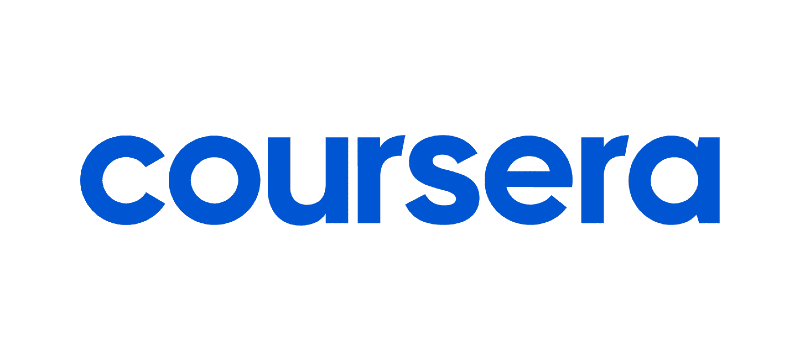Driving employee learning potential, powered by AI
As the buzz about AI has increased in both velocity and volume, many find themselves wavering between being awe-inspired by its possibilities and being concerned about its risks.
What's for certain, is data, analytics and technology have a crucial role to play in helping organizations connect learners with learning and career opportunities, and ultimately fill their skill gaps.
How can AI be your co-pilot in learning for 2024 and beyond?



In this exclusive UNLEASH webinar, Mervyn Dinnen, co-creator of Talent Watch, was joined by Eman Absia, senior director of customer success at Coursera and Carolin Widenka, director development, performance and rewards Viessmann to discuss limitless possibilities that among others AI has to shape the future of work.
Webinar Highlights:
- Enhancing employee skills: Discover concrete examples of how leading corporations have successfully integrated AI into their learning and development setups, resulting in enhanced organizational skill building as well as employee skills and performance.
- Reshaping the future of work: Stay at the forefront of AI-driven innovations in corporate learning, from AI-driven skill engines to intelligent content recommendation systems to adaptive learning platforms, and gain insights into how these technologies are reshaping the skilling and learning landscape.
- Achieving goals and overcoming obstacles: Learn practical strategies and best practices for adopting AI as a foundation and backbone in large corporations, including how to overcome implementation challenges, ensure data privacy, and measure the impact of AI-powered learning initiatives.
- Unleashing the potential of AI: AI plays a central role in how businesses acquire, develop, and transfer skills as well as knowledge while exploring the potential of AI-driven skill-building and learning to revolutionize talent development and drive organizational success.
Discussing AI’s key challenges and potential opportunties
“What practical strategies and best practices can large corporations adopt when integrating AI into their upskilling or learning initiatives?” This was one of the opening questions Dinnen posed to both Absia and Widenka.
Absia answered first, highlighting three key challenges that she’s identified. “HR leaders want us to be on top of Gen AI,” she says, “but it's evolving so fast, we're having trouble keeping up with the developments and with the applications. It’s a major challenge because not many of us have figured it out.
“Secondly, there’s a strong sense of confusion, fear, and risks around emerging technologies, as well as ethical questions that add complexity to how to approach this struggle.
“And, the third and final challenge ties back to how businesses can upskill every employee within this area.
“It’s really about finding a way that every employee can receive some element of upskilling in this era – which also incorporates leaders and executives,” she surmises.
Widenka then takes over to discuss how to gain trust from leadership to ensure they are accepting e.g.skills suggestions for jobs derived from external skill engines and how to validate those properly.
“If you want a validation of skills per job, you need to tackle every job – with leaders or business representatives discussing each job and validating it properly,” she says. “Also, if you want the system to learn and come up with even better suggestions in the future, the language we use regarding those skills needs to be customized.”
Widenka explains that Viessmann has done this in two specific ways.
Firstly, in terms of skills-based recruiting. Viessmann looks at skill suggestions from its skills database, which recruiters then take to the hiring manager to discuss once they have opened up positions. To support this, Viessmann no longer includes lengthy descriptions of tasks but rather focuses on a skills-based approach to recruiting.
Secondly, Widenka highlights that the role-based approach of up- and reskilling Viessmann has chosen is literally based on the future skills per job and not on the individual person’s preferences. Leaders must be involved in the definition of those future skills per job as well as in the development of ‘Learning Modules’ based on those skills. – or example, by attending future skills workshops discussing in-depth the future skills per job needed to bring the organization to the next level
Widenka adds: “My key take home from today’s session would be to share that AI and further technologies are a given fact. They’re here to stay and we can cleverly implement those to build skills ‘at scale’ within our organizations and contribute to ensure employment at employability in a focused and targeted way particularly in times of transformation.”
In agreement, Absia adds: “I would also encourage a general curiosity around technology and generative AI, as it’s important for us all to practice using it.
“Although we’re still very early on in the journey, we mustn’t just see it as a solution for others, but for our own teams, too. We need to see technology, particularly AI, as a part of our own learning and development strategy while really thinking about the opportunities these tools can offer.”
Register for free to watch the webinar to hear from Absia on how AI will shape the future of work as well as Widenka’s tips on how a role-based approach in the context of up- and reskilling can be leveraged by a dynamic skill database.
